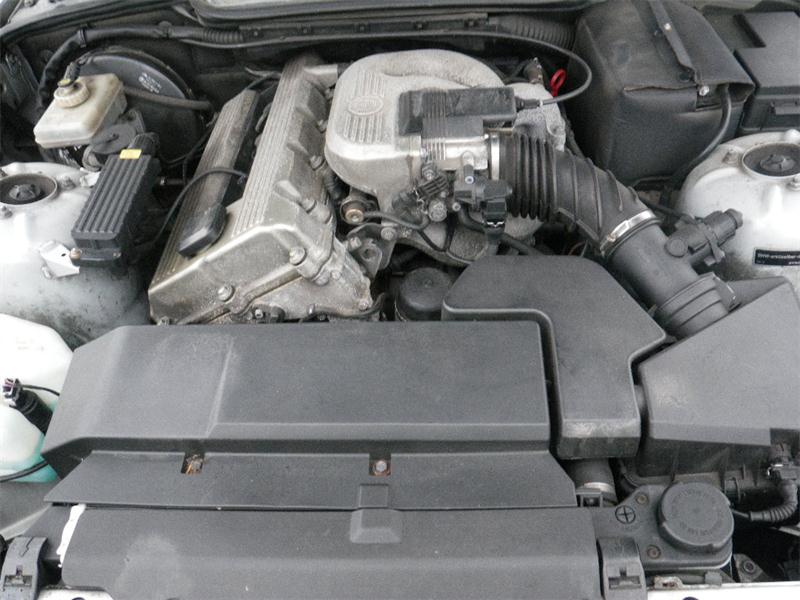Upgrading Your BMW 318ti: Leading Mods and Enhancements
Upgrading Your BMW 318ti: Leading Mods and Enhancements
Blog Article
Crucial Considerations for Choosing the very best Engine for Your Needs
In the world of choosing the perfect engine to fulfill your demands, several vital elements demand precise factor to consider to guarantee optimum performance and performance. From the nuanced equilibrium between power and performance to the often-overlooked facets of upkeep and solution needs, each aspect plays a critical role in establishing one of the most appropriate engine for your details needs. As the intricacy of engine technologies remains to progress, critical the most suitable alternative requires a deep understanding of the interaction between different considerations. By discovering the detailed internet of elements that underpin this decision-making procedure, a more clear course arises in the direction of choosing an engine that not only satisfies but exceeds your expectations.
Power and Efficiency
When evaluating engines for ideal performance, it is crucial to prioritize both power result and effectiveness. Efficiency refers to just how well the engine transforms fuel into functional energy. By thoroughly assessing both power and efficiency, you can pick an engine that delivers optimum efficiency and satisfies your needs successfully.
Gas Effectiveness and Economic Situation
Fuel performance refers to the engine's ability to transform fuel right into power with marginal waste, directly affecting operating prices and ecological sustainability. Engines with greater fuel effectiveness not only reduce gas expenditures yet additionally reduce carbon emissions, adding to a greener procedure.

Compatibility and Application
Thinking about the gas effectiveness and economic situation of an engine, the next vital facet to address is its compatibility and application within certain operational contexts. Compatibility refers to exactly how well the engine incorporates with the general system or tools it powers. It includes aspects such as physical measurements, mounting alternatives, electric interfaces, and control systems. Making certain compatibility is necessary to stop concerns such as overheating, vibrations, or power imbalances (bmw 318ti).
In addition, the application of the engine is equally important. Various engines are designed for specific purposes, whether it be commercial machinery, aquatic vessels, vehicles, or power generators. Understanding the designated application permits for the selection of an engine that can supply the required power outcome, torque, and operational qualities. A high-revving engine developed for performance vehicles would not be suitable for sturdy building devices that requires high torque at reduced rates.
Upkeep and Solution Requirements
Maintenance and solution requirements play a critical role in ensuring the longevity and ideal efficiency of an engine. Normal maintenance is crucial to avoid failures, prolong the life expectancy of the engine, and maintain its performance. When picking an engine, it is necessary to consider the supplier's recommended maintenance schedule and the availability of solution centers or qualified specialists.
Aspects such as the frequency of oil changes, filter substitutes, and overall inspections can considerably affect the engine's efficiency. Some More about the author engines may call for even check that more frequent maintenance based upon their layout and usage, while others might have longer periods in between upkeep checks. It is vital to abide by these solution demands to stay clear of costly repair work and unanticipated downtime.

Cost and Budget Plan Considerations
Spending plan constraints usually play a significant duty in the decision-making procedure when picking an engine for a certain application. When considering the price and budget plan implications of choosing an engine, it is important to evaluate not only the preliminary purchase rate yet also the long-term expenses related to upkeep, fuel consumption, and possible upgrades or fixings. It is crucial to strike a balance in between the in advance cost of the engine and its total lifecycle expenses to guarantee that the picked engine continues to be economically lasting throughout its functional life-span.
Variables such as gas dependability, effectiveness, and durability can straight influence the complete price of ownership of an engine. While an extra expensive engine may have greater ahead of time expenses, it can potentially result in reduced maintenance and gas expenditures over time, hence using much better value in the lengthy run.
Final Thought

Fuel performance refers to the engine's capacity to transform fuel right into power with very little waste, straight affecting operating prices and ecological sustainability.Aspects affecting fuel effectiveness include engine layout, burning effectiveness, and general efficiency optimization. Furthermore, choosing the suitable gas kind and quality as advised by the engine producer can further boost efficiency and extend engine life expectancy.
Engines with good utility attributes and conveniently available components can minimize maintenance costs and decrease the time the engine is out of operation - bmw 318ti. It is critical to strike an equilibrium between the ahead of time expense of the engine and its total lifecycle costs to make sure that the selected engine stays economically lasting throughout its functional lifespan
Report this page